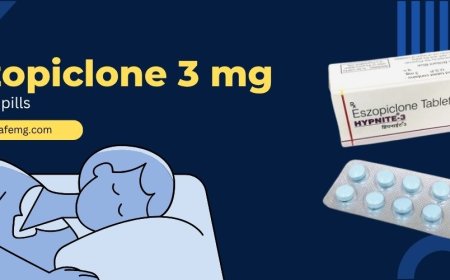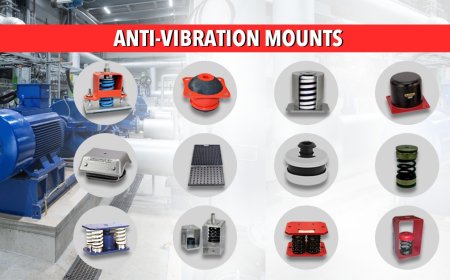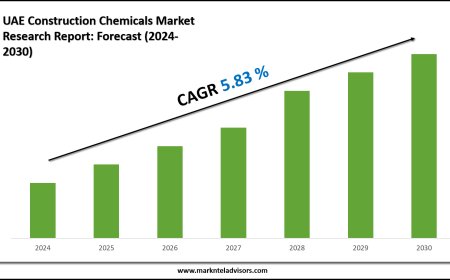GMP Certification: The Essential Standard for Cosmetics and Personal Care Product Manufacturers

If you're in the business of creating cosmetics or personal care products, you know the importance of both product safety and consumer trust. These arent just products; theyre the items that people trust with their skin, hair, and even their health. So, how can you make sure your products are both safe and of the highest quality? GMP certification is the answer.
Good Manufacturing Practice (GMP) certification isn't just a fancy labelits a proven framework that ensures your manufacturing processes meet industry standards for safety, quality, and efficiency. And when it comes to cosmetics and personal care products, it's not just about following regulations; it's about building a brand people trust.
In this article, well explore why GMP certification is a game-changer for cosmetics and personal care manufacturers, how you can achieve it, and what it means for your business's growth and reputation.
What Exactly Is GMP Certification?
Before we dig into how GMP certification can benefit your business, lets first answer a simple but essential question: What is it?
GMP stands for Good Manufacturing Practiceits a set of guidelines established by regulatory authorities (like the FDA in the U.S. or the European Medicines Agency in Europe) to ensure that products are consistently produced and controlled according to quality standards.
For cosmetics and personal care products, this means ensuring that:
The ingredients you use are safe and properly sourced.
Your production processes follow strict hygiene and quality guidelines.
Testing of the final product guarantees safety and effectiveness.
Packaging ensures your product stays safe and effective from production to use.
In short, GMP certification is a reflection of your commitment to quality. It means that your processes are aligned with the highest industry standards, ensuring that your products are both safe for consumers and compliant with local and international laws.
Why Does GMP Certification Matter for Cosmetics and Personal Care Products?
If youre thinking, Okay, but why should I go through the trouble of getting GMP certified?, lets take a closer look at the many benefits.
1. Consumer Trust and Confidence
Trust is everything in the cosmetics industry. Whether its a face cream, shampoo, or a lip balm, people expect that what they put on their skin will be safe and effective. GMP certification shows your customers that you care about their safety and satisfaction. It assures them that your products have been manufactured under strict guidelines and tested for quality.
In todays competitive market, where people have endless choices, GMP certification can set you apart. Consumers want to know that the products they buy wont cause harm or irritate their skin. If they see the GMP mark on your products, they're more likely to trust you.
2. Legal Compliance and Market Access
Whether you're looking to sell your cosmetics locally or on the international stage, GMP certification is a legal requirement in many countries. For example, in Europe, cosmetics manufacturers must comply with the EU Cosmetics Regulation, which includes adhering to GMP standards. In the U.S., the FDA expects all cosmetics manufacturers to follow GMPs.
Without GMP certification, you may find it difficultor even impossibleto enter certain markets. Furthermore, not adhering to GMP standards could leave your company vulnerable to regulatory scrutiny, fines, or product recalls. On the flip side, GMP certification opens the door to global markets, ensuring that your products are accepted in countries that enforce strict manufacturing standards.
3. Improved Efficiency and Reduced Risk of Errors
Implementing GMP guidelines within your manufacturing process isnt just about meeting legal standardsits also about improving operational efficiency. By standardizing your procedures, you minimize the risk of human error, contamination, or other production issues that can affect product quality.
When you follow GMP, youre also able to track your production more easily. You can identify areas for improvement, reduce waste, and optimize the use of raw materials. This level of control over your production process means fewer mistakes and a smoother, more reliable production flow.
4. Enhanced Product Quality
A GMP-certified facility focuses on continuous improvement, quality control, and product testing. This means that the products rolling off your assembly line arent just safe; theyre top-quality too.
Take, for example, skin-care products. If youre making moisturizers, youll want to ensure that the consistency, scent, and texture of each batch remain consistent. By following GMP guidelines, you reduce the chances of products being inconsistent or defective. GMP-certified companies perform rigorous batch testing to verify that each product meets the same standards of quality and safety.
5. Protects Your Reputation
Nothing can tarnish a companys reputation faster than a safety issue or a product recall. A poorly manufactured cosmetic product can cause skin irritation, allergic reactions, or worseand once something like that happens, its hard to regain consumer trust.
GMP certification serves as a safety net against such risks. When you maintain rigorous quality standards, you avoid situations that could damage your reputation. More than just a piece of paper, GMP certification becomes an assurance of your commitment to product excellence.
How Do You Achieve GMP Certification?
Now that weve covered the "why" behind GMP certification, lets move to the practical side: how do you actually get GMP certified?
1. Understand the Requirements
The first step is understanding the GMP requirements specific to your region and the type of cosmetics you produce. In Europe, for instance, you'll need to meet the EU Cosmetics Regulation, while in the U.S., the FDA's Cosmetic GMP guidelines apply. These documents will outline everything from ingredient sourcing to labeling and packaging requirements.
2. Review Your Manufacturing Process
Once you know whats required, take a deep dive into your current manufacturing processes. Are your production lines clean and safe? Do you have procedures in place for quality checks and traceability? Are your employees well-trained on handling products and following safety guidelines?
This is the time to make improvements where necessarywhether thats upgrading equipment, tightening hygiene practices, or improving staff training.
3. Conduct Internal Audits
Before you undergo an official inspection, its a good idea to conduct internal audits. This helps identify any areas that might not fully align with GMP standards. Internal audits will also give you the opportunity to correct any discrepancies before external inspectors come knocking.
4. Get Third-Party Inspection and Certification
In most cases, GMP certification requires a third-party audit. There are various organizations and certifying bodies that can conduct these inspections. A certification body will send auditors to your facility to evaluate your compliance with GMP standards.
After the audit, theyll issue a certification if your processes meet the necessary requirements. This might involve some back-and-forth if any areas need improvement, but once you pass, youll receive the coveted GMP certification.
5. Maintain Compliance
Achieving GMP certification isnt a one-time event. Its an ongoing commitment. To maintain your certification, youll need to stay on top of changes to regulations, perform regular audits, and keep your production processes in top shape. Youll also need to stay current with GMP refresher courses for your employees.
The Final Word: Why GMP Certification Should Be a Priority
Its clear: GMP certification is more than just a regulatory checkbox; its an integral part of ensuring the safety, quality, and reliability of your cosmetics and personal care products. From gaining consumer trust to securing global market access, the benefits are undeniable.
If you havent already started your journey toward GMP certification, nows the time to do it. Itll help elevate your products, your brand, and your business to the next level. Yes, the process can be detailed, but the payoffin terms of safety, quality, and reputationis worth every ounce of effort.
As a cosmetics or personal care manufacturer, remember that quality and trust are what drive your business forward. With GMP certification, you show that youre not just meeting industry standards; youre exceeding them.






































